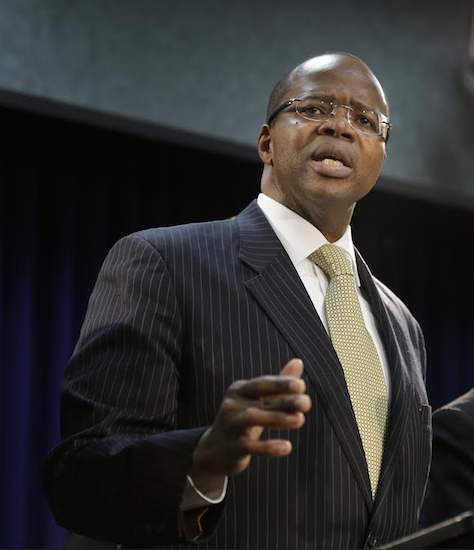Brooklyn’s top prosecutor calls for criminal justice reforms
Continues Push-Back on Special Prosecutors; Explains Halt of Brooklyn’s Gun Buyback Program

On Nov. 20, 2014, Akai Gurley was shot and killed by a probationary officer who was conducting a vertical patrol of the Louis Pink Houses in East New York, Brooklyn. Gurley’s death, unanimously understood to be the tragic result of an unintentional killing, is one of many similarly tragic encounters between unarmed men of color and city police officers.
A few months earlier, in Staten Island, Eric Garner was killed after being placed in a chokehold by an NYPD officer after being questioned on allegations of selling “loosies”—single, untaxed cigarettes. Bystander cellphone video captured much of the events leading up to and including Garner’s death, along with his final words, “I can’t breathe.”
Civil rights advocates and Garner supporters deemed the widely viewed footage as videotaped proof that the unarmed man was placed in a banned police chokehold; this opinion is also held by Brooklyn’s District Attorney, Ken Thompson. “Yes. I believe he was placed in a chokehold,” Thompson said in response to a direct question by this reporter.

Brooklyn Boro
View MoreNew York City’s most populous borough, Brooklyn, is home to nearly 2.6 million residents. If Brooklyn were an independent city it would be the fourth largest city in the United States. While Brooklyn has become the epitome of ‘cool and hip’ in recent years, for those that were born here, raised families here and improved communities over the years, Brooklyn has never been ‘uncool’.